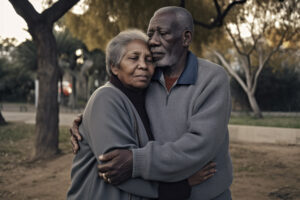Grief is our brain and body’s response to the loss of a loved one, a pet, an opportunity, an identity or a life trajectory. It can feel like a door slamming hard into your face. Whether anticipated or sudden, a life disrupted and forever changed by loss can trigger a chain of stress responses from shock to hopelessness to loneliness to being overwhelmed. For many, it is a major crossroad in life or a tipping point.
As universal as grief is to the human experience, each person’s journey through the stages of grief is unique. Avoiding and hiding grief can stall the grief process and potentially turn a temporary experience into a trauma. While coping with grief takes time, people can find ways to use grief as a learning experience that helps them develop and grow as a person and in life.
Symptoms of grief and loss
Not everyone experiences all the stages of grief and loss and there isn’t necessarily a predictable order of events. The severity and duration of grief and loss symptoms can also differ from person to person and experience to experience. Here are a few stages common to the grieving experience.
- Denial
- Anger
- Bargaining
- Depression
- Acceptance
Therapy for grief and loss
Profound and continuous grief can interrupt life and stymie healthy relationships. A grief and loss therapist can help you focus on what it is that you are feeling and experiencing rather than what you think you should be feeling and experiencing. Grief and loss therapy brings a personalized level of support, knowledge and skills to support progression through the initial emotional distress of loss to arrive at a recovery stage that becomes more accepting, grateful and peaceful of the experience.

